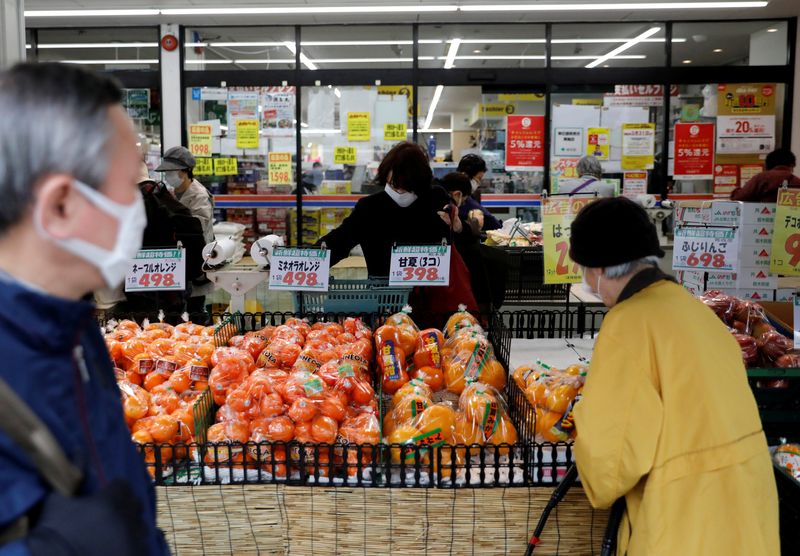TOKYO (Reuters) - Japan's core consumer inflation likely slowed in January from the previous month, a Reuters poll showed, reinforcing expectations the country's central bank will lag well behind other economies in raising interest rates.
Separate data is also expected to show Japan likely ran the biggest trade deficit in eight years in January as persistent rises in fuel and raw material costs swelled imports, according to economists polled by Reuters.
The nationwide core consumer price index (CPI) likely rose 0.3% in January from a year earlier, slowing from a 0.5% gain in December, the poll of 16 economists showed on Friday.
The slowdown is largely due to one-off factors such as the base effect from a suspension of the government's travel discount campaign in late 2020.
When stripping away such temporary factors, consumer inflation is likely to be perking up, analysts say.
"Imported goods prices have been rising, and the effect is spreading to previously soft domestic prices," said Takeshi Minami, chief economist at Norinchukin Research Institute.
And yet, many analysts expect consumer inflation to remain distant from the Bank of Japan's 2% target for the time being, forcing the central bank to maintain ultra-loose policy.
Separate data will likely show Japan suffered a trade deficit of 1,607 billion yen ($13.91 billion) in January, the biggest shortfall since January 2014.
Imports likely jumped 37.1% in January on rising raw material and fuel costs, outpacing a 16.5% gain in exports, the poll showed.
Core machinery orders, also due next week, likely fell 1.8% month-on-month in December to mark the first decline in four months, the poll showed.

The government will release CPI data at 8:30 a.m. on Feb. 18 (2330GMT, Feb. 17). Trade data and machinery orders data are due at 8:50 a.m. on Feb. 17 (2350GMT, Feb. 16).
($1 = 115.5200 yen)
